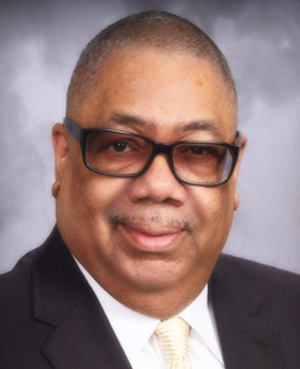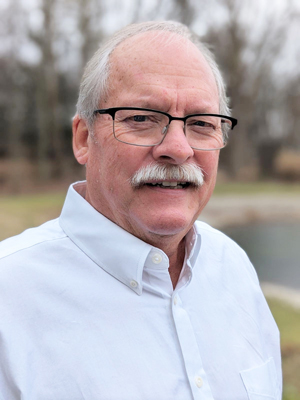
By Rev. Donald L. Perryman, Ph.D.
The Truth Contributor
The strength of the people is greater than the people in power.
Wael Ghonim
The 2024 elections are heating up, and the battle for Ohio’s House District 44 is, perhaps, THE local race to watch. Dave Blyth, the Democratic Party candidate, is a name The Truth’s readers should definitely get to know.
In an attempt to bolster Republican Party dominance in areas like District 44, Ohio’s contentious and controversial redistricting process recently combined parts of previously distinct districts. Yet, Democrats see a chance to begin dismantling the GOP’s stranglehold on Ohio’s legislative interests in spite of these attempts.
The district includes Toledo’s western suburbs, such as Monclova, Waterville and Whitehouse, as well as portions of Lucas, Wood and Ottawa counties. Although slightly leaning Republican, District 44’s sizeable number of middle—and working-class voters are eager for change. Evidently, Blyth’s mantra that the Ohio GOP’s supermajority has consistently pushed through policies that benefit the wealthy and well-connected while ignoring the voices of everyday Ohioans is beginning to resonate.
Blyth’s grassroots experience in public education, workers’ rights, and environmental sustainability, combined with his extensive background as a labor activist, uniquely suits him to address the concerns of District 44 residents.
We caught up with the Democratic Party candidate to understand how his platform aligns with his district’s priorities.
This is what Blyth had to say:

Perryman: Help my readers get to know you a bit better.
Blyth: I was born in Lawrence, Massachusetts, a town known for its woolen mills and strong labor presence. Eventually, an opportunity brought us to Toledo. I started sixth grade at Rosary Cathedral and later graduated from Central Catholic in 1972. That was the same year the voting age was lowered from 21 to 18 due to protests over the Vietnam War, where young men were being sent to fight without the right to vote. That November, I cast my first vote for George McGovern, and I’ve been engaged in politics ever since.
Perryman: What was your career like after high school?
Blyth: I worked as a mobile DJ, doing gigs, but that didn’t offer a pension or healthcare, so I looked for something more stable. I got a job with Lucas County in the dog warden department, where I worked for 27 years. That’s when I became active in union activities, serving as a union steward and advocating for my co-workers at the bargaining table. I successfully secured pay raises for the dog wardens and other classifications, which not only increased their wages but also impacted their pensions.
I later edited the newsletter for Local 544 in Lucas County. In 2008, I became a staff representative and business agent for AFSCME Ohio Council 8, a role I held for 12 years until I retired in 2020. I briefly returned during the COVID-19 pandemic to help with staffing shortages, but I left that position when I decided to run for office. That brings us up to date.
Perryman: How do you think your education at Central Catholic and the University of Toledo, where you earned a degree in law enforcement, has influenced your career or shaped your political views?
Blyth: My political views were shaped primarily by my parents, but they were further influenced when I started working for the county. That’s when I realized that, as a county employee, I had a say in who my bosses were since the county commissioners are elected officials. I’ve always been a lifelong Democrat, but working for the county made me see firsthand how important it is to get involved. I learned that elections are won by reaching out to voters, knocking on doors, making phone calls, and motivating people to turn out.
Perryman: As a consultant and former business agent for AFSCME, what were some of the significant challenges that you faced and how did you overcome them?
Blyth: The learning curve was steep when I first became a staff representative, but I approached it with energy and curiosity. The job required more than a standard 40-hour workweek; most weeks, I worked well beyond that. One of my biggest challenges was negotiating my first contract with Toledo Public Schools, which involved five different AFSCME units. These units included bus drivers, custodians, skilled trades, clerical workers and custodial staff—totaling around 870 members when I left.
The challenge was managing a group of 20 representatives from these units, each with different demands and priorities. I successfully guided the negotiation process multiple times, securing good contracts and avoiding labor strife by keeping everyone on the same page and working toward a common goal.
Perryman: How has your role in labor prepared you for legislative duties if elected?
Blyth: Over the years, I’ve learned that, in many ways, I’m like a salesman. Whether it’s encouraging someone to join a union, persuading them to vote for a contract, or supporting a candidate, the key is to find common ground and focus on shared goals. It’s important to listen to others’ opinions and not shut them down, as making people feel undervalued or unheard is the worst approach.
Perryman: Discuss your experience with grassroots political mobilization, such as circulating petitions and knocking on doors. Given the current divisive political climate, what strategies are most effective for grassroots efforts today?
Blyth: For me, our approach has always been to directly engage with our non-dues-paying employees. Since the Janus decision eliminated fair share fees, having those conversations has become even more important. It’s about motivating and communicating with people, helping them understand the connection between their financial well-being, union membership and the impact of their vote. We need to guide them in recognizing how these factors are interrelated and how their choices can significantly affect their lives.
Perryman: What are the current priorities of the Democratic Party in Ohio?
Blyth: The policies and the candidates we support are solid, but our messaging needs improvement. If I were debating my opponent, I wouldn’t fall into the trap of answering questions designed to embarrass or make me look bad. Instead, I’d shift the focus back to the real issues, like the corruption in Columbus or how out of touch the opposition is. Democrats often get caught up in debates and lose ground. We need to simplify our message—make it something people can easily grasp, like a bumper sticker.
Perryman: If elected, what key issues or priorities would you focus on addressing?
Blyth: The first priority is what I refer to as personal freedom. By that, I mean the protection of women’s reproductive rights, which the voters overwhelmingly supported by approving Issue One last November. Despite this clear mandate, Republicans are ignoring the results, acting as if nothing changed. They’re now suggesting that existing laws on reproductive healthcare will require legal challenges to be repealed rather than acknowledging that these laws should be voided immediately. So, the fight continues on that front.
Secondly, I firmly believe that the government should not interfere with what is taught in our schools. Look at what’s happening in Florida—they actually proposed adding language to history classes, suggesting that, while slavery was terrible, it provided enslaved persons with life skills that benefited them later. That’s outrageous. The government shouldn’t be meddling in education merely to score political points. For the past 250 years, our educational system has thrived on free thought and open discussion, particularly in our universities and colleges, and we must preserve those freedoms.
Perryman: Those are the two main issues. Are there any other key concerns you’d like to address?
Blyth: I do. As I mentioned, I attended Rosary Cathedral and graduated from Central Catholic. My mother was a devoted Roman Catholic, and I lived near Central, so it was a natural fit for me to go there. However, my concern now is with the voucher system. I believe the Republicans are intent on dismantling public education by diverting funds that should go to public schools and giving them to private schools without proper oversight.
For example, a family of four in Ohio with an income of $135,000 can qualify for $8,000 in vouchers. Even affluent families in districts like Anthony Wayne can receive this money. This is not means-tested, and it’s simply wrong. Many students receiving these vouchers were already attending private schools, and some schools are even raising tuition because of the vouchers.
If people choose to attend private schools, that’s their decision, but I wasn’t asked if my tax dollars should fund them. I’m strongly against this.
Perryman: District 44 leans slightly more Republican than Democrat. How do you plan to effectively advocate for policies that might not align with the majority of constituents in this district?
Blyth: I believe the key is to stay true to my principles. On the issue of reproductive healthcare, for example, my campaign manager has informed me that 57 percent of this district supported reproductive healthcare rights, which aligns with my stance and will likely resonate with voters.
My opponent holds an extreme view on this issue, equating abortion with murder without exceptions, and he avoids discussing it. I can’t, in good conscience, change my beliefs just to get elected. I aim to connect with voters who share my views on personal freedoms, supporting public schools, environmental protection like cleaning up Lake Erie, and implementing common-sense gun control measures.
If those positions don’t resonate with someone, then it’s fair for them to support another candidate. My priority is to be honest and principled, even if that means not winning everyone over.
Perryman: Finally, why should we vote for Dave Blyth?
Blyth: You should vote for me because I’m focused on the needs of everyday people, not the wealthy. Rich people have plenty of influence in Columbus and Washington and always find a way to land on their feet.
I’m concerned about those who lie awake at night, trying to figure out how to make ends meet—I’ve been there, and I know how tough it is. Ohio needs politicians in Columbus who will focus on reducing the tax burden on the middle class, addressing the student debt crisis from public universities, and prioritizing safe drinking water, clean Lake Erie, and safe communities.
My priorities are rooted in my own experiences and those of average working people because that’s who I am and who I represent.
Contact Rev. Donald Perryman, PhD, at drdlperryman@centerofhopebaptist.org
